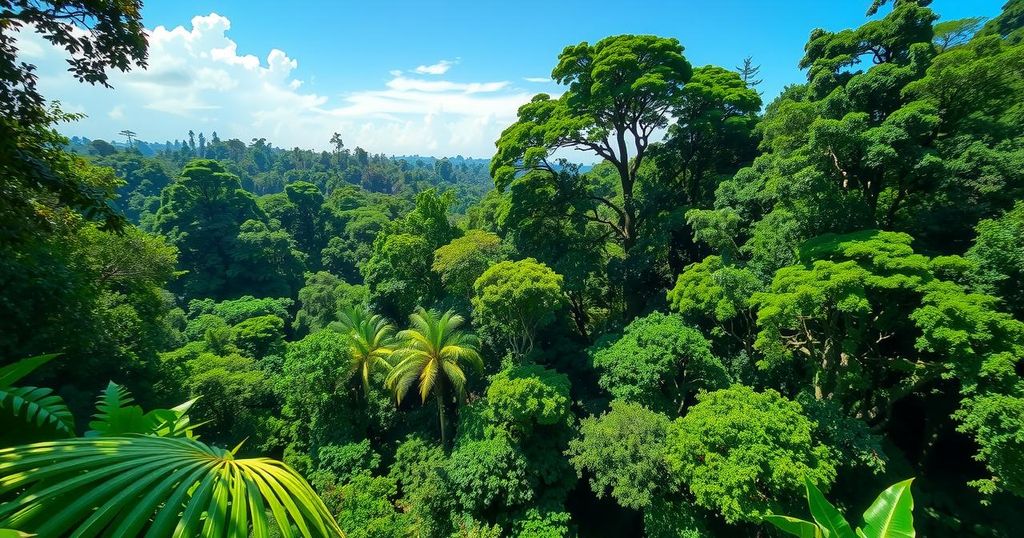Climate change
BAMENO, CLIMATE CHANGE, CLIMATE NEWS, ECUADOR, ENVIROMENTAL_ISSUES, ENVIRONMENTAL PROTECTION, INSIDE CLIMATE NEWS, INTER - AMERICAN COURT OF HUMAN RIGHTS, KATIE SURMA, LATIN AMERICA, PARK, PEN, PENTI BAIHUA, POLLUTION, SOUTH AMERICA, SUSTAINABLE DEVELOPMENT, YASUNI, YASUNI NATIONAL PARK
Jamal Walker
0 Comments
Ecuador Ordered to Safeguard Uncontacted Indigenous Groups From Oil Drilling
Ecuador is mandated by an international court to halt oil drilling in lands of uncontacted Indigenous peoples, affirming a national referendum aiming to protect these areas. The ruling emphasizes Indigenous rights and environmental protection amid the country’s reliance on oil revenue.
An international human rights court has mandated Ecuador to cease oil operations on lands inhabited by uncontacted Indigenous communities, further enforcing a national referendum advocating for the preservation of these environments. This decisive ruling by the Inter-American Court of Human Rights indicates that Ecuador has violated the rights of Indigenous peoples by allowing oil drilling activities in Yasuni National Park.
The court’s verdict requires the Ecuadorian government to prevent any further oil expansion into these territories and to implement protective measures against external threats, including illegal logging. Notably, this decision represents the first legal precedent set by an international court regarding the rights of Indigenous groups choosing to remain isolated from contact.
Indigenous voices have long expressed concern over the encroachment of oil drilling, particularly in Yasuni National Park, which houses both uncontacted tribes and a wealth of unique biodiversity. The adverse effects of drilling operations have resulted in water pollution, accelerated deforestation, and the displacement of Indigenous communities. This ruling not only upholds Indigenous sovereignty but also recognizes the legal implications of environmental threats in the region, setting a significant precedent for similar cases throughout Latin America and beyond.
Ecuador’s dependence on oil revenue has traditionally been pivotal for funding government initiatives and infrastructure development, yet this extractive economic model generates considerable environmental and social repercussions. The ruling stands as a challenge to this model and aligns with global movements aimed at reducing fossil fuel reliance amid escalating climate change issues. For both Indigenous leaders and environmental advocates, this court ruling signifies a notable victory in their ongoing efforts to prevent oil extraction in vulnerable territories.
The Inter-American Court of Human Rights has compelled Ecuador to prioritize the protection of uncontacted Indigenous groups against oil drilling in Yasuni National Park. This landmark ruling reinforces Indigenous rights and highlights the environmental and social ramifications of oil extraction. As Ecuador grapples with economic reliance on oil, this decision may signal a broader shift toward valuing environmental conservation and Indigenous sovereignty over aggressive extraction practices.
Original Source: www.ehn.org




Post Comment